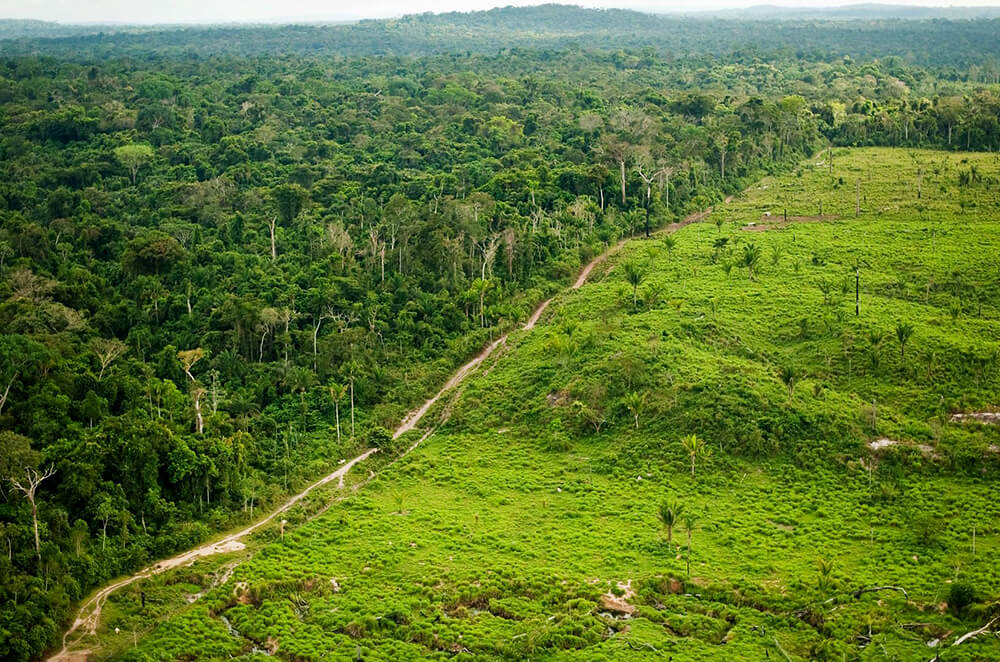Latin America and the Caribbean, a region of unparalleled biodiversity and natural beauty, has been grappling with a growing ecological crisis over the past two decades. In this time, more than 39 million hectares of primary forests, that is, forests untouched by human intervention, have been lost.
The causes of this deforestation vary from country to country, and can range from agribusiness expansion and extensive livestock systems to illicit crops, illegal mining, and illegal logging.
Additionally, forest fires, unsustainable resource use for production and livestock, the impacts of climate change, and overexploitation of water resources have all played their part in the region’s environmental crisis.
According to several activists and experts, deforestation in Latin America is predominantly a consequence of human activities. Forested lands are transformed for other uses, including the cultivation of crops such as soy, oil palm, and avocado.
Furthermore, the effects of climate change, particularly during intensified drought periods, have led to a notable surge in forest fires – and these are often triggered by human actions.
Why Planting Trees Is Crucial
Given the challenges the region’s forests are facing, it becomes imperative to understand the significance of reforestation and afforestation efforts. Planting trees is not just about beautifying our landscapes; it's about preserving our planet's health and securing our future. Here are some compelling reasons why planting trees is a must:
Climate Regulation: Forests are vital in moderating greenhouse gas emissions, and tropical forests alone contribute up to 30% of the global efforts needed to combat climate change. They act as nature's carbon sinks and help keep the planet's temperature in check.
Oxygen and Carbon Cycles: Forests regulate the world's oxygen and carbon cycles. They control local and regional climates by exchanging water and energy with the atmosphere, ensuring a balanced and stable environment.
Disaster Mitigation: Sustainable forest restoration can help mitigate the occurrence of climate-related disasters, such as wildfires and flooding, by maintaining ecological balance.
Economic Value: Planting trees can bring substantial economic value to local communities. Studies have shown that for every $1 invested in land restoration, local economies can gain up to $30 in return.
The Dominican Republic’s Good Example
Deforestation presents a significant challenge that demands immediate action. And countries like the Dominican Republic have understood this and fostered both public and private initiatives to restore their native forests and get their citizens involved.
The Ministry for the Environment has been running reforestation campaigns for years, as part of their plan to increase forest cover in the country. The most recent figures show that over 5,5 million trees have already been planted in high risk areas.
And this year their reforestation initiative got a boos when local artists like Ramón Orlando, Cheo Zorrilla, Krisspy, Peña Suazo, Monchy Capricho, Enrique Féliz, Carlos Alfredo, Kaki Vargas, Ala Jaza, Henya Tejeda, Rubby Pérez and Dionis Fernández called on their fans and followers to participate in tree planting and support the initiative anyway they could.
Other reforestation projects have also been successfully running in the Dominican Republic for years, particularly those sponsored by banks. Banco Popular Dominicano, for example, reached its goal of planting 1 million trees by 2030 in 2022. Meanwhile, other banks joined Master Card’s Priceless Planet Coalition, which has the goal of restoring 100 million trees by 2025 all over the world.
The battle against deforestation is not only a fight for biodiversity and nature but a battle for our own survival and well-being. As seen above, through concerted efforts we can rekindle hope and work toward a sustainable future where forests thrive, and our planet prospers.

